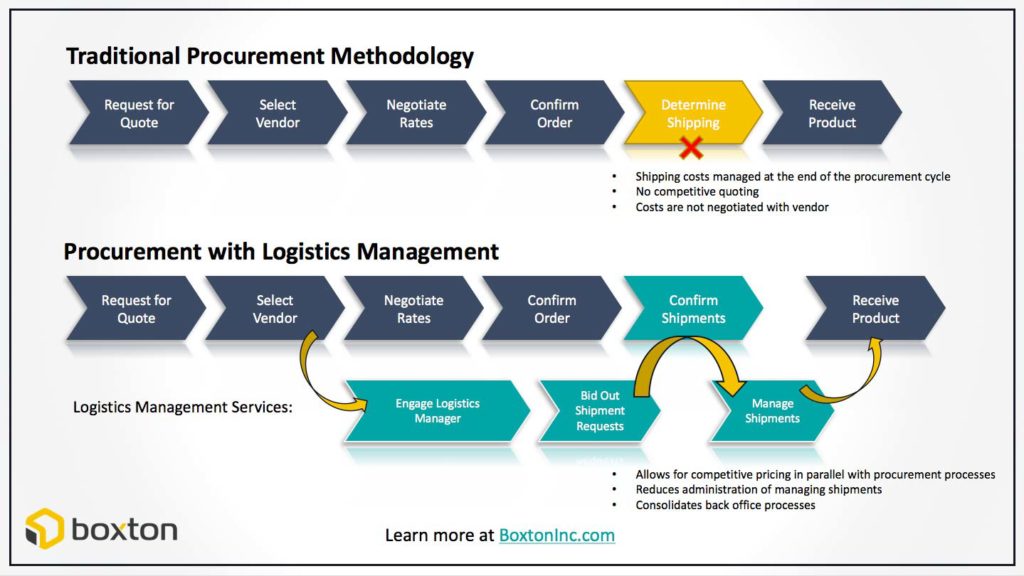In 2016, logistics management costs accounted for 8% of the United States annual GDP. A significant portion of this spend, not surprisingly, includes the costs associated with getting products from a manufacturer or supplier to its final customer. Yet in a lot of organizations, shipping costs for goods that support their core business are ignored.
It is estimated that 10% of enterprise logistics costs are managed outside of the logistics organization.
But why does this matter?
Imagine you’re in IT Procurement for a large retail company. You are charged with outfitting your data centers with new IT infrastructure at the lowest possible costs. You’re an expert at procuring servers, racks, cooling, etc. You know exactly what specs to include in an RFQ, you stay educated on the latest IT purchasing trends, and you have your pulse on the market. Three of the leading server companies provide you with quotes for your next order of servers and you negotiate the price down with your selected vendor. You go to sign the purchasing agreement and the only loose end is who is responsible for shipping. You speak to your vendor, they provide you with a fee for shipping, and you sign the agreement.
You’ve just missed out on a golden opportunity to reduce costs!
Suppliers & manufacturers are great at building products and procurement is great at purchasing goods. But unless you have an effective process to send out a logistics RFQ to multiple top shipping companies, experience in managing complex international shipments, and a consolidated system to track these shipments, it is difficult to ensure you’re getting the best pricing on shipments.
On average, when a shipment is not properly negotiated and managed by a person with logistics experience companies see an increase of 30% in shipping costs as well as countless wasted administrative hours.
The same goes for any type of purchase that occurs in an organization. Whether you’re buying display cases for marketing, paper pulp for packaging materials, or desks for your new office space, your projects can benefit significantly from a proper shipping and logistics management process.
So how do I address logistics management for supporting teams effectively?
Enter the role of the logistics management service provider. The goal of these companies is to ensure you are receiving truly competitive shipping rates, reduce your administrative burden, and manage the process of freight shipping. A logistics management service company knows exactly what questions to ask to figure out how much something is going to cost to ship (which is more complicated than you would think). They know what information to provide to shipping companies to get an accurate quote. They have the expertise in managing many different complex shipments to ensure everything is delivered on time. And they know what the end user needs in terms of the daily tracking of shipments as well as the proper, hassle-free method of invoicing for them.
Using a service frees up everyone else in the purchasing cycle to focus on their core competency. Don’t just ignore logistics, hand it over to the experts.







